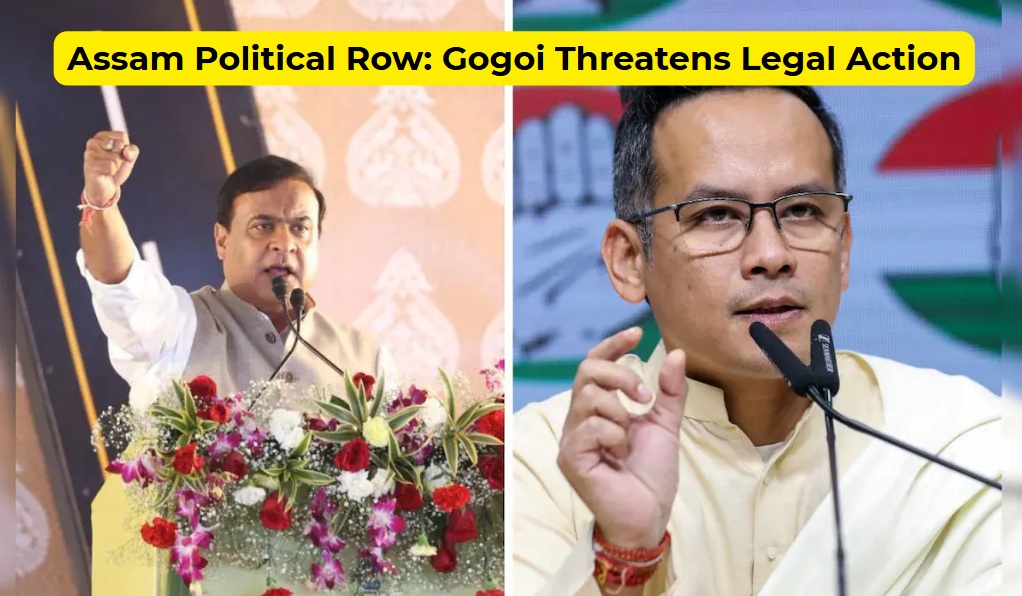The devastating floods and landslides that struck North Bengal have now spiralled into a full-blown political confrontation in West Bengal. As rescue and relief operations continue amid mounting criticism, Governor C.V. Ananda Bose’s sudden visit to Delhi — where he met President Droupadi Murmu and submitted a detailed report on the situation — has set off a fresh wave of political speculation in the state.
Natural Calamity, Political Turmoil
Heavy rainfall and landslides over the past week wreaked havoc across North Bengal districts such as Darjeeling, Jalpaiguri, and Cooch Behar. Dozens of lives were lost, hundreds of homes were destroyed, and vital roads and bridges were washed away.
But what began as a natural disaster has quickly acquired political overtones. Opposition parties have accused the Mamata Banerjee-led Trinamool Congress (TMC) government of gross administrative negligence, delayed relief, and lack of preparedness. The TMC, in turn, has dismissed the criticism as “politically motivated” and “insensitive during a humanitarian crisis.”
Governor’s Report and Political Signals
Sources in Raj Bhavan confirmed that Governor Bose’s meeting with President Murmu focused on the scale of destruction, the state’s handling of relief efforts, and alleged administrative lapses.
Although the contents of the report remain confidential, political circles in Kolkata suggest that the Governor has highlighted “serious governance gaps” and possible “failures in coordination” during the disaster.
His direct communication with the President — bypassing the state government — is being read as a significant escalation in the ongoing rift between Raj Bhavan and Nabanna (the state secretariat).
Senior BJP leaders have welcomed the Governor’s move, calling it “necessary intervention in the face of state apathy,” while the TMC has accused the Governor of acting on behalf of the Centre to “undermine an elected state government.”
Attack on BJP MP Adds to Tensions
The situation turned more volatile when BJP MP Khagen Murmu, who was visiting flood-affected areas, was attacked by unidentified assailants. The BJP has alleged that the attackers were linked to the TMC and that the assault was aimed at preventing opposition leaders from distributing relief materials.
Murmu sustained serious injuries and was admitted to a local hospital. Chief Minister Mamata Banerjee later visited him — a gesture that triggered mixed reactions.
While the TMC portrayed it as a show of concern, BJP leaders dismissed it as a “photo opportunity” amid rising public anger.
Protests erupted in several districts demanding accountability and condemning the breakdown of law and order.
Caste and Political Narrative
The attack on Murmu, a tribal leader, has also ignited debate over selective outrage in national discourse. BJP leaders alleged that “Dalit and tribal rights activists remain silent” when atrocities involve BJP members, accusing sections of the media and opposition of double standards.
Political observers say such remarks reflect the increasingly polarized rhetoric dominating Bengal’s political climate, where identity and allegiance often blur the line between governance and ideology.
Mamata Banerjee Hits Back
Chief Minister Banerjee, meanwhile, has struck back hard, alleging that the BJP and the Governor are trying to “politicize a tragedy.” She accused the Centre of attempting to interfere in state affairs under the guise of disaster management and voter verification.
In a fiery statement, Banerjee called Union Home Minister Amit Shah “Mir Jafar,” claiming that the BJP is using administrative tools to destabilize her government. She also alleged that the ongoing Systematic Investigation and Revision (SIR) process — a voter list verification drive — is being “misused to target minority voters.”
SIR Drive Becomes Flashpoint
The SIR campaign, launched by the Election Commission to verify voter lists, has become a major flashpoint in Bengal politics.
While the BJP argues that it is essential to remove fake and illegal voters, the TMC claims it is an attempt to implement the National Register of Citizens (NRC) by stealth.
Party insiders say Banerjee is deeply concerned that the SIR process could result in large-scale deletions of voters — particularly among communities the TMC counts as its core base.
Centre–State Tension Deepens
Governor Bose’s report and Mamata Banerjee’s counterattacks have further strained relations between the state and the Centre.
Officials say the Centre could seek a more detailed review of the state’s disaster response and the relief funds utilized, potentially increasing political pressure on the TMC ahead of the 2026 Assembly elections.
Political analysts believe the BJP is using the issue to corner the Chief Minister, while the TMC is framing it as an attack on Bengal’s autonomy.
Ground Reality: Relief Chaos and Public Anger
On the ground, the picture remains grim. Many flood victims in North Bengal are still waiting for adequate relief and rehabilitation. Several relief camps lack basic facilities, and villagers allege that aid distribution is being influenced by local political networks.
Despite repeated assurances from the Chief Minister that “the situation is under control,” visuals from affected areas show collapsed bridges, washed-out roads, and families stranded without assistance.
A Report Beyond the Floods
As the floodwaters recede, the political tide in West Bengal shows no signs of calming. Governor Bose’s report to the President appears to have gone beyond documenting the natural disaster — it reportedly underscores a deeper administrative crisis and growing distrust between constitutional institutions in the state.
If the Centre decides to act on the Governor’s findings, the repercussions could be far-reaching — potentially reshaping Bengal’s political landscape ahead of the next election cycle.
For now, North Bengal remains submerged in water — and the state’s politics, in controversy.





